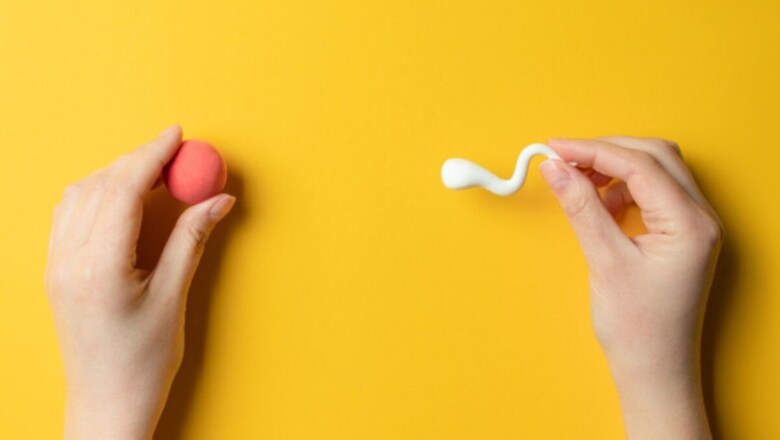
250
views
views
Adopting a balanced diet can be a proactive step towards optimizing reproductive health and increasing the likelihood of conceiving
Genetics, age, and lifestyle choices are among the many factors that play a crucial role in female fertility. The right dietary choices can positively impact female fertility by promoting hormonal balance, enhancing ovulation, and supporting reproductive health. Understanding the impact of dietary choices on female fertility is crucial for couples planning to start a family.
- Embrace a Balanced, Nutrient-Rich DietA well-balanced diet forms the foundation for optimal reproductive health. Ensure your plate consists of a variety of nutrient-dense foods such as fruits, vegetables, whole grains, lean proteins, and healthy fats. Aim for a colourful array of fruits and vegetables to obtain a wide range of vitamins, minerals, and antioxidants that promote overall fertility.
- Prioritize Complex CarbohydratesChoose complex carbohydrates like whole grains, legumes, and starchy vegetables over refined carbohydrates. These foods have a lower glycaemic index and can help stabilize blood sugar levels, reducing the risk of insulin resistance and related fertility issues.
- Incorporate Healthy FatHealthy fats, such as those found in avocados, olive oil, nuts, and seeds, are vital for reproductive health. They aid in hormone production and balance, support the absorption of fat-soluble vitamins, and reduce inflammation. Include a moderate amount of these fats in your diet to support your fertility goals.
- Opt for Plant-Based ProteinsPlant-based proteins, such as beans, lentils, and tofu can be excellent alternatives to animal proteins. They provide essential amino acids without the potentially negative effects of high animal protein consumption on fertility. However, if you choose to consume animal protein, opt for lean sources like fish and poultry.
- Don’t Skimp on IronIron is crucial for healthy ovulation and overall reproductive function. Include iron-rich foods such as lean red meat, poultry, beans, spinach, and fortified cereals in your diet. Pairing these foods with vitamin C-rich sources, like citrus fruits, can enhance iron absorption.
- Focus on Fertility-Friendly NutrientsInclude folate-rich foods (leafy greens, fortified grains) to support fetal development, and omega-3 fatty acids (fatty fish, walnuts) to promote hormonal balance. Additionally, antioxidants (berries, tomatoes) can help protect eggs from oxidative damage.
- Moderate Caffeine and Alcohol IntakeIt is advisable to moderate caffeine consumption to support reproductive health. Excessive alcohol intake, on the other hand, has been linked to decreased fertility. Limit alcohol consumption or avoid it altogether if you are trying to conceive.
It must be noted that factors like age, underlying health conditions, and genetics also play a significant role in overall fertility health. Nevertheless, adopting a balanced diet can be a proactive step towards optimizing reproductive health and increasing the likelihood of conceiving.




















Comments
0 comment